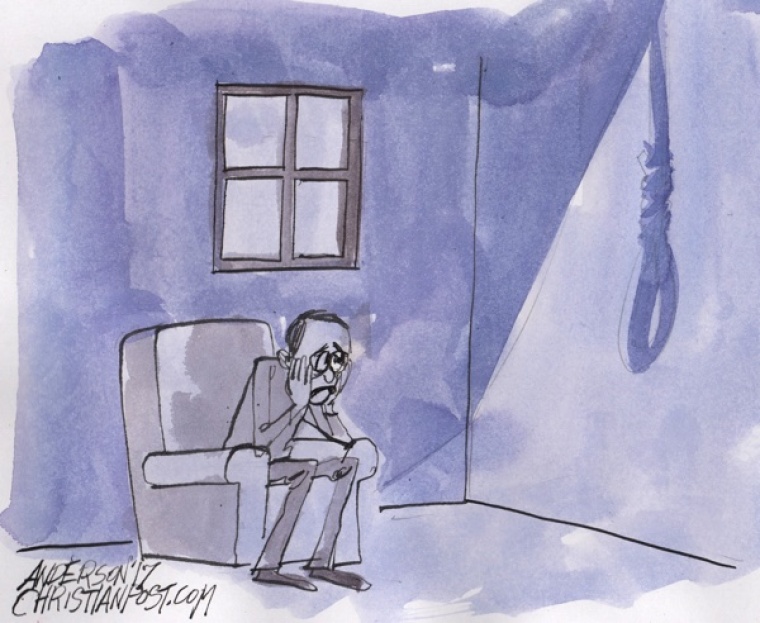
Hopelessness reigns among a portion of the population, capitalism has become prone to excess and democracy underestimated. Current events in the United States indicate a deteriorating standard of living for the very people who used to be at the heart of the American dream. They are literally dying in pursuit of it. Current events throughout Europe also point to the expansion of problematic populist ideologies. Two books suggest a number of cures.
In the follow-up to a noteworthy article with a title evoking America’s “deaths of despair,” Nobel Prize-winning economist Angus Deaton and his wife Anne Case, both professors at Princeton University, look into the reasons behind the deteriorating standard of living for uneducated white Americans. The book centers the blame on capitalism’s excesses and the U.S. health care system.
‘Deaths of Despair’
Those the French press sometimes refers to as “bottom-tier whites” are living in an era of declining labor union participation, marriage rates and religious beliefs. Above all, they are the first to fall victim to reckless prescribing and drug use. This social reality forms a deadly epidemic and “a cocktail of capitalism’s problems” that Case and Deaton would like to treat. Following in the footsteps of Emile Durkheim, whom they frequently cite, they concentrate on the underlying causes of suicide, overdoses and alcoholism. These three issues are feeding such “deaths of despair” and cost 158,000 American lives in 2017. The statistical trends are striking. While Europe has seen its mortality rate continuously decline, the rate in the U.S. started rising in the 2000s for white Americans with little to no education. The authors document the distress and hopelessness of a population that, like those of other Americans of modest means, is suffering the consequences of offshoring and digitization. But the origin of their social malaise, counterbalanced by resorting to artificial paradises and dangerous opioid prescriptions, also lies in the diminishment of work and a feeling of adverse discrimination, while minorities have been enjoying affirmative action policies.
‘Sheriff of Nottingham Redistribution’
These “bottom-tier” Americans, now Donald Trump supporters, have seen their incomes stagnate, their purchasing power decline, and their values eroded. For the authors, what is deadly is downward social mobility and “predatory capitalism.” Case and Deaton put much of the blame on the U.S. health care system, viewed as “a cancer at the heart of the economy.” Absorbing 18% of gross domestic product, it is the world’s most costly health system and ranks among the five lowest performing of all Organization for Economic Cooperation and Development countries, while only one in five Americans say they are satisfied with their health care. A considerable burden on the cost of labor and the morale of those who pay dearly for it, it characterizes a country whose life expectancy has been falling since 2014. Moreover, the health care industry has five lobbyists per member of Congress. Case and Deaton have faith in the virtues of capitalism, but not in the modern American system. Aside from the health care sector, they criticize what they call “Sheriff of Nottingham redistribution” (the opposite of “Robin Hood redistribution”), under which money from the poor is being redistributed upward to the rich.
In sum, they find fault with a capitalist system that looks like a “racket” for the benefit of financiers and rentiers. The authors prioritize solutions such as regulating markets, especially the health care and opioids markets. On the whole, Case and Deaton call for putting an end to the advantages enjoyed by pharmaceutical companies, banks and the real estate industry, sectors that largely set the standards of which they are the beneficiaries. They argue that procedural and institutional reform should be emphasized over tax reform.
The Erosion of Local Communities
For a pick-me-up after the bleak portrait painted by these economists, a short book by political philosopher Charles Taylor, along with two of his close collaborators, should do the trick for readers. A communitarian theorist, Taylor views the community as a good in itself. Like Case and Deaton, he laments the erosion of local communities and their social norms. Taylor and his co-authors aspire to rebuild democracy from the “bottom up” (a term popular with consultants). Liberal democracies find themselves facing two major issues: a decreased ability to solve problems and a growing gap between the people and political elites.
Could the course of democratic degeneration be reversed by holding more systematic community consultations to redefine the local common good? Or is this just wishful thinking? The book envisions the creation of forward looking local councils made up of people chosen at random for two-year terms. Their goal? Put an end to the predilection for the present and the latest poll results. In short, the authors want to set up participatory democracy forums that stamp out the distinction between volunteers and salaried workers. Economists Case and Deaton certainly wouldn’t endorse everything in the book, but all of the authors agree on the need – applicable to all – to regain control over the future.
Julien Damon is an associate professor at Sciences Po in Paris.
Anne Case and Angus Deaton. ”Deaths of Despair and the Future of Capitalism.” Princeton University Press, 2020, 312 pages.
Charles Taylor, Patrizia Nanz and Madeleine Beaubien Taylor. ”Reconstructing Democracy: How Citizens are Building from the Ground Up.” Harvard University Press, 2020, 107 pages.

Leave a Reply
You must be logged in to post a comment.